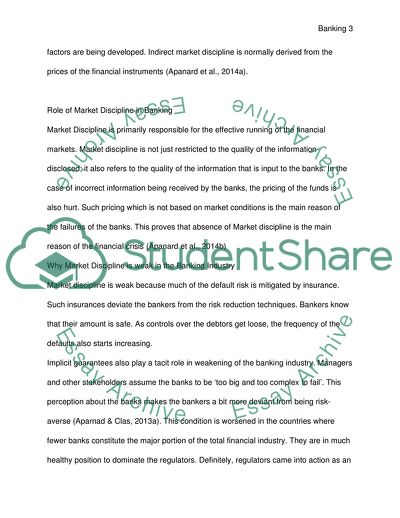Cite this document
(Is Regulation a Substitute for Market Discipline in Banking Essay, n.d.)
Is Regulation a Substitute for Market Discipline in Banking Essay. https://studentshare.org/finance-accounting/1818922-is-regulation-a-substitute-for-market-discipline-in-banking
Is Regulation a Substitute for Market Discipline in Banking Essay. https://studentshare.org/finance-accounting/1818922-is-regulation-a-substitute-for-market-discipline-in-banking
(Is Regulation a Substitute for Market Discipline in Banking Essay)
Is Regulation a Substitute for Market Discipline in Banking Essay. https://studentshare.org/finance-accounting/1818922-is-regulation-a-substitute-for-market-discipline-in-banking.
Is Regulation a Substitute for Market Discipline in Banking Essay. https://studentshare.org/finance-accounting/1818922-is-regulation-a-substitute-for-market-discipline-in-banking.
“Is Regulation a Substitute for Market Discipline in Banking Essay”. https://studentshare.org/finance-accounting/1818922-is-regulation-a-substitute-for-market-discipline-in-banking.


